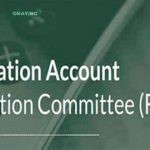Businesses across Nigeria are projecting a challenging 2025, with high interest rates and persistent insecurity identified as the most significant hurdles to operational success, according to the Central Bank of Nigeria’s (CBN) February Business Expectations Survey. While a sense of cautious optimism pervades the economic landscape, these formidable obstacles are casting a long shadow over potential growth.
The survey, released during the week, reveals a stark reality: 75% of respondents cite crippling interest rates as a primary concern, closely followed by insecurity at 73.9% and the perennial issue of inadequate power supply at 73.8%. “These constraints are likely to weigh on operational efficiency and profitability,” particularly for the nation’s vital small and medium-sized enterprises (SMEs), which are often more vulnerable to financial shocks, as the CBN report indicates.
“When you consider the impact of these high interest rates, coupled with the daily threat of insecurity, it creates a very difficult environment for any business to thrive,” said a Lagos-based SME owner, who requested anonymity. “It’s not just about profits; it’s about survival.” This sentiment echoes the lived experiences of many entrepreneurs, who grapple with the dual pressures of financial strain and physical safety.
Despite these challenges, a thread of optimism runs through the survey results. The construction sector, for instance, leads the charge in employment prospects for March 2025, signaling potential growth in infrastructure and real estate. The mining and quarrying sector also anticipates significant expansion, while the electricity, gas, and water supply sectors project robust investment.
Read Also: Inflation Grips Nigerian Businesses: 85.5% of Large Firms Flag High Prices
“We see a positive outlook across all broad sectors – industry, services, and agriculture – for employment and expansion over the next six months,” the CBN report states. This optimism is further bolstered by the expectation of a strengthening Naira, which could alleviate financial pressures, particularly for import-dependent industries. As one economic analyst notes, “A stable exchange rate provides a crucial buffer against the volatility that has plagued many businesses in recent years.”
The survey also indicates an improvement in overall capacity utilization, with the construction sector leading the way. This suggests that businesses are operating closer to their potential, which could drive productivity and economic growth. Additionally, the volume of total order book index shows a positive trend, signaling strong demand and potential growth in manufacturing and market services.
While economic data paints a picture of resilience, the reality for many businesses is fraught with uncertainty. The high interest rates, for instance, can stifle innovation and limit expansion, hindering job creation. Insecurity, on the other hand, creates an environment of fear and instability, deterring investment and disrupting supply chains.
The CBN survey serves as a critical barometer of business sentiment, highlighting both the opportunities and challenges that lie ahead. As Nigeria navigates these complex economic waters, addressing the twin issues of high interest rates and insecurity will be paramount to unlocking the nation’s full economic potential.













